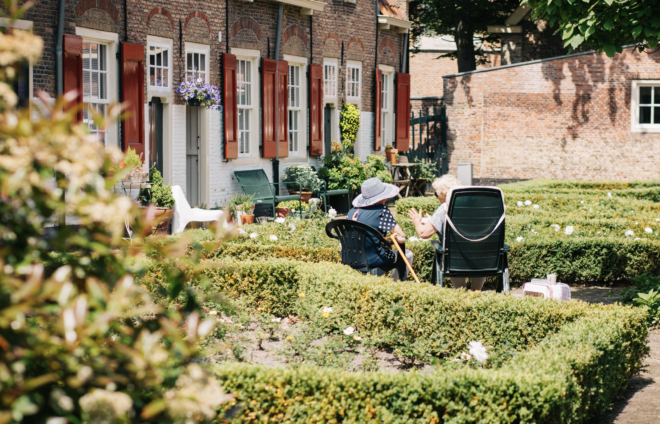Enhancing the Quality of Life in Eco-Friendly Senior Living Spaces
Senior living spaces in the Netherlands should prioritize providing a comfortable and healthy atmosphere for residents. Eco-friendly practices can significantly improve air quality, resource use, and overall well-being. These sustainable practices not only benefit the environment but also promote happiness and health for older adults.
1. **Air Quality:** Incorporating indoor plants, better insulation, and high-quality air filters can enhance air quality in senior living facilities. This is especially important for older adults who may suffer from lung problems. Improved air quality can reduce asthma attacks and ease symptoms of lung conditions.
2. **Stress Relief:** Natural light, indoor plants, and accessible outdoor spaces have been shown to reduce stress, improve mood, and create a relaxing environment. Sunshine also provides essential vitamins and nutrients that older adults may have difficulty obtaining.
3. **Heart Health:** Exposure to outdoor spaces, regulated temperatures, and indoor plants can benefit heart health by lowering stress levels and improving air quality. Better air quality means healthier breathing, which in turn supports a healthy heart.
4. **Mental Health:** Eco-friendly living spaces offer opportunities for gardening, green transportation, and social activities, promoting exercise, socializing, and mental enrichment. Better air quality can supply more oxygen to the brain, improving mood and mental well-being.
5. **Enrichment:** Learning new activities, such as gardening and recycling, can provide enrichment for older adults in eco-friendly communities. This sense of engagement and contribution can improve mood, mental health, and overall well-being.
6. **Comfort:** Eco-friendly features like better ventilation, air quality, and temperature controls can prevent neglect and abuse in senior living facilities. By ensuring a comfortable living environment, older adults can thrive without the risk of harm or injury.
7. **Building Quality:** Using natural materials and sustainable practices can improve the quality and longevity of buildings in senior communities. This leads to safer and happier living spaces for residents.
8. **Water Quality:** Prioritizing water recycling practices can enhance water quality in eco-friendly living areas. By removing harmful pollutants and chemicals, older adults can have access to safe and clean water for consumption.
9. **Pollutants:** Eco-friendly renovations can reduce exposure to common pollutants like microplastics and asbestos in older buildings. This creates a healthier living environment for seniors, reducing the risk of respiratory issues and skin irritations.
10. **Finances:** Implementing renewable energy sources can significantly reduce utility bills in senior living communities, improving financial health for older adults. Electric transportation and water recycling can also lead to cost savings and financial security.
In conclusion, eco-friendly senior living spaces offer numerous benefits for residents, including improved air and water quality, enhanced mental and physical health, and increased financial stability. By prioritizing sustainable practices, senior communities can create a healthier and more enjoyable environment for older adults to thrive in.






